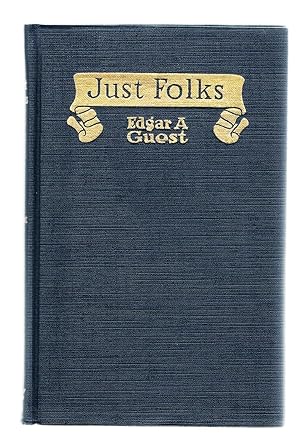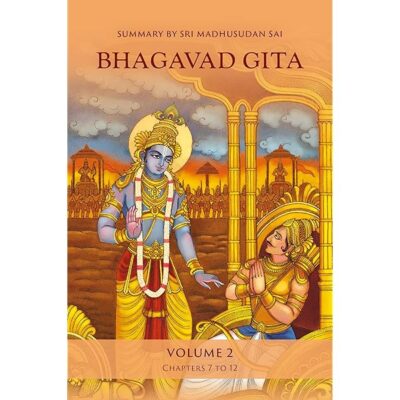249 Results with the "Poetry" genre
Adventure Fiction (1164)
Biography (435)
Business & Finance (1)
Children's Literature (124)
Comics (6)
Culture (51)
Drama (123)
Dystopian (29)
Fable (86)
Fantasy (1132)
Fantasy (203)
Fiction (1010)
Finance (1)
Gothic Fiction (12)
Historical Fiction (615)
History (122)
Horror (56)
Lifestyle (36)
Literary (404)
Literary Fiction (207)
Memoir (113)
Mystery (422)
Non-fiction (87)
Novel (549)
Paranormal Fiction (96)
Philosophical (182)
Philosophy (45)
Political Fiction (14)
Politics (42)
Practical (32)
Psychological (4)
Psychological Thriller (108)
Relationship (6)
Romance Novel (716)
Romantic Melodrama (14)
Satire (91)
Science (46)
Science Fiction (345)
Self-help (68)
Society (65)
Society (2)
Spiritual Growth (1)
story (2)
Thriller (704)
True Crime (56)
view (11)
Women's Fiction (2)
Young Adult (233)
-
Chapter
The Mother’s Question
 The Mother's Question captures the memory of a son who, now grown, reflects on the tender concerns of his mother during his early years. Whenever he arrived home after a walk in the rain, she would always ask the same thing—whether his feet were wet. Though it seemed like a small detail at the time, that repeated question stood as proof of her deep care and constant vigilance. Her love was expressed through actions: preparing warm socks, heating slippers by the fire, and watching the door until he…
The Mother's Question captures the memory of a son who, now grown, reflects on the tender concerns of his mother during his early years. Whenever he arrived home after a walk in the rain, she would always ask the same thing—whether his feet were wet. Though it seemed like a small detail at the time, that repeated question stood as proof of her deep care and constant vigilance. Her love was expressed through actions: preparing warm socks, heating slippers by the fire, and watching the door until he…-
116.6 K • Ongoing
-
-
Chapter
The Lure That Failed
 The Lure That Failed begins with a portrait of a whimsical land, full of colors brighter than any real-world palette and joys untouched by adult concerns. It’s a place where laughter is never forced and no one ever grows tired, hungry, or grumpy. Everything sweet is in endless supply—chocolate and cookies fall like blessings from the sky, and not a single child is told to wait before having more. The sun never sets too early, and bedtime simply doesn’t exist. In this place, puppies play gently,…
The Lure That Failed begins with a portrait of a whimsical land, full of colors brighter than any real-world palette and joys untouched by adult concerns. It’s a place where laughter is never forced and no one ever grows tired, hungry, or grumpy. Everything sweet is in endless supply—chocolate and cookies fall like blessings from the sky, and not a single child is told to wait before having more. The sun never sets too early, and bedtime simply doesn’t exist. In this place, puppies play gently,…-
116.6 K • Ongoing
-
-
Chapter
The Love of the Game
 The Love of the Game begins with a voice that pushes back against a world obsessed with winning, proving, and outdoing. Instead of glorifying success in its usual form—money, fame, or accolades—it leans into a different kind of victory. This victory is quieter, rooted in the joy of effort itself, and in the satisfaction of knowing that something was done wholeheartedly. The speaker notices how often people get lost in comparison. They look at what others have and feel cheated or left behind. But what…
The Love of the Game begins with a voice that pushes back against a world obsessed with winning, proving, and outdoing. Instead of glorifying success in its usual form—money, fame, or accolades—it leans into a different kind of victory. This victory is quieter, rooted in the joy of effort itself, and in the satisfaction of knowing that something was done wholeheartedly. The speaker notices how often people get lost in comparison. They look at what others have and feel cheated or left behind. But what…-
116.6 K • Ongoing
-
-
Chapter
The Little Army
 The Little Army begins with an image full of energy and color—young boys and girls playing with all the seriousness of real soldiers, though their battles are imaginary and their weapons made of wood. With paper hats proudly worn and broomsticks clutched like rifles, they march to rhythms tapped out on tin cans and toy drums. Their faces glow with joy, their eyes lit by dreams, not yet shadowed by the weight of the world. Each step they take, each shout and cheer, builds a world where fear does not…
The Little Army begins with an image full of energy and color—young boys and girls playing with all the seriousness of real soldiers, though their battles are imaginary and their weapons made of wood. With paper hats proudly worn and broomsticks clutched like rifles, they march to rhythms tapped out on tin cans and toy drums. Their faces glow with joy, their eyes lit by dreams, not yet shadowed by the weight of the world. Each step they take, each shout and cheer, builds a world where fear does not…-
116.6 K • Ongoing
-
-
Chapter
THE LIMIT OF LANDS.
 The Limit of Lands opens with a stillness not born from peace but from distance—the kind that exists between the living and the realms that stretch beyond. Here, the earth does not speak in the voices of birds or the movement of green branches; instead, it whispers through wind over dry grass and through the shadows of stone. The sea marks the furthest edge of what the world allows, lapping gently at the shore as though it too knows this is a place where boundaries blur. No temples remain—only ruins,…
The Limit of Lands opens with a stillness not born from peace but from distance—the kind that exists between the living and the realms that stretch beyond. Here, the earth does not speak in the voices of birds or the movement of green branches; instead, it whispers through wind over dry grass and through the shadows of stone. The sea marks the furthest edge of what the world allows, lapping gently at the shore as though it too knows this is a place where boundaries blur. No temples remain—only ruins,…-
14.6 K • Ongoing
-
-
Chapter
The Job
 The Job can often be mistaken as the measure of a person’s value, but the truth is far more personal and empowering. It is not the title or status that shapes success, but the effort one brings to the work. The chapter explores how fulfillment is found in the dedication applied to any task, whether grand or humble. Each position becomes meaningful through honesty, skill, and consistency, not through the applause it may or may not receive. When seen through this lens, every job holds the potential to…
The Job can often be mistaken as the measure of a person’s value, but the truth is far more personal and empowering. It is not the title or status that shapes success, but the effort one brings to the work. The chapter explores how fulfillment is found in the dedication applied to any task, whether grand or humble. Each position becomes meaningful through honesty, skill, and consistency, not through the applause it may or may not receive. When seen through this lens, every job holds the potential to…-
116.6 K • Ongoing
-
-
Chapter
The Day of Days
 The Day of Days arrives quietly but carries a joy that children never forget. It begins with the hopeful glance outside, barefoot dreams dancing in young minds as warm breezes signal winter’s retreat. Shoes become a burden, socks a nuisance, and the long-awaited plea—“Can we go barefoot now?”—echoes with the confidence that spring has finally won. Mothers hesitate, instinctively protective, but the sun’s persistence softens their concern. Permission is granted not with ceremony but with a…
The Day of Days arrives quietly but carries a joy that children never forget. It begins with the hopeful glance outside, barefoot dreams dancing in young minds as warm breezes signal winter’s retreat. Shoes become a burden, socks a nuisance, and the long-awaited plea—“Can we go barefoot now?”—echoes with the confidence that spring has finally won. Mothers hesitate, instinctively protective, but the sun’s persistence softens their concern. Permission is granted not with ceremony but with a…-
116.6 K • Ongoing
-
-
Chapter
The Call
 The Call begins with an image of something just out of reach—a vision of joy standing atop a distant hill, calling gently but firmly to those below. It is not a loud cry, but a steady invitation for hearts that long for peace after struggle. Though the path winds and rises steeply, the promise at the top offers enough light to keep weary souls moving forward. Life’s burdens might weigh down the climb, but the hope of something better pushes each step onward. The hill is symbolic—not just of effort,…
The Call begins with an image of something just out of reach—a vision of joy standing atop a distant hill, calling gently but firmly to those below. It is not a loud cry, but a steady invitation for hearts that long for peace after struggle. Though the path winds and rises steeply, the promise at the top offers enough light to keep weary souls moving forward. Life’s burdens might weigh down the climb, but the hope of something better pushes each step onward. The hill is symbolic—not just of effort,…-
116.6 K • Ongoing
-
-
Chapter
The Boy Soldier
 The Boy Soldier begins with a warm and familiar scene—an energetic child no older than three, wrapped in laughter and curiosity, engaging in pretend battle with the most accessible “enemy” he knows: his father. In his tiny hands, a beard becomes a rope to pull, buttons become targets to poke, and a watch becomes the prize he proudly claims. These harmless skirmishes are not fought with anger but with love, as the child’s playful assaults are absorbed with joy. The father, although seemingly under…
The Boy Soldier begins with a warm and familiar scene—an energetic child no older than three, wrapped in laughter and curiosity, engaging in pretend battle with the most accessible “enemy” he knows: his father. In his tiny hands, a beard becomes a rope to pull, buttons become targets to poke, and a watch becomes the prize he proudly claims. These harmless skirmishes are not fought with anger but with love, as the child’s playful assaults are absorbed with joy. The father, although seemingly under…-
116.6 K • Ongoing
-
-
Story
The Bhagavad-Gita
 The Bhagavad-Gita, a revered scripture in Hindu philosophy, is a spiritual dialogue between Prince Arjuna and Lord Krishna, set on the battlefield of Kurukshetra. Through this profound discourse, Krishna imparts timeless wisdom on duty, righteousness, selflessness, and the paths to spiritual liberation, blending philosophy, ethics, and devotion into a guide for living a meaningful life.
The Bhagavad-Gita, a revered scripture in Hindu philosophy, is a spiritual dialogue between Prince Arjuna and Lord Krishna, set on the battlefield of Kurukshetra. Through this profound discourse, Krishna imparts timeless wisdom on duty, righteousness, selflessness, and the paths to spiritual liberation, blending philosophy, ethics, and devotion into a guide for living a meaningful life.-
4.7 K • Nov 8, '24
-
4.5 K • Nov 8, '24
-
4.0 K • Nov 8, '24
-
- Previous 1 … 3 4 5 … 8 Next
